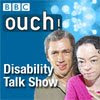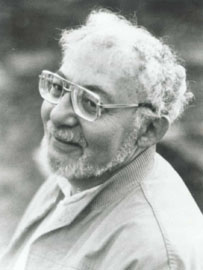From time to time we will offer this space to organizations working in partnership with the disability community to address issues of widespread interest. The Wireless RERC in Atlanta has developed a new web portal that shows great potential. We wish them well in fostering cross-disability conversations (in English at first, but one hopes in additional languages as the utility of the portal is demonstrated), as we all grapple with a democratizing communication platform -- the cell phone. See Horst and Miller (2006) for an anthropological view of how this emergent technology is incorporated into particular communication cultures.
Reference: Heather A. Horst and Daniel Miller (2006) The Cell Phone: An anthropology of communication (Oxford and New York: Berg).
Dear readers and members of Disability Studies, Temple U.:
Congratulations on a great website/blog. It is clear that you have put in a lot of skill, effort and commitment into developing such extensive, useful and compelling content.
I just wanted to introduce the readers at Disability Studies to our organization, the Wireless RERC, based in Atlanta.
We are a research and engineering group funded by the National Institute on Disability and Rehabilitation Research (NIDRR) of the U.S. Department of Education. NIDRR funds a number of other RERCs dedicated to research and engineering for people with disabilities [list]. Our group includes faculty and staff from the Georgia Institute of Technology and the Shepherd Center, a critical care facility dedicated to spinal cord injury.
We obtained our original funding in 2001, and were renewed for a second five-year cycle in 2006. The mission of the Wireless RERC is to: “to promote universal access to and use of mobile wireless technologies and explore their innovative applications for people with disabilities.”
We are engaged in three main areas of activity:
1. Conducting research on the wireless needs of people with all types of disability.
We do this by:
- Inviting people with disabilities to participate in our ongoing Survey of User Needs and join the Consumer Advisory Network
- Assessing the usability of wireless products by representative users with disabilities, usually through focus groups
- Promoting awareness among consumers of accessible wireless options
- Promoting awareness among providers about the needs of customers with limitations due to age or disability
Additionally, we have just launched MyWirelessReview.com with the hope of creating a space where people of all abilities can share opinions, information, tips, news items about wireless technology as it relates to people with disabilities.
As we have just launched the site, we are eager to invite participation from the readership of DS, TU. While we ramp up, I have been posting some news items that have implications for wireless users with disabilities, and some comments from participants in some of our recent focus groups.
Also, I just posted an audio file from a recent brown bag luncheon at the Center for the Visually Impaired (CVI) here in Atlanta, in which the presented compares the features and functionality of Windows Mobile and Symbian (used on Nokia’s) operating systems. The presenter, who is blind, is a technology instructor at CVI, and consequently offers an important perspective on such technology. [Check it out]
I have another audio clip from a different technology instructor at CVI detailing her experiences downloading and installing Mobile Speak software onto her mobile phone. Great stuff! Very informative. I’m still waiting on final approval from the presenter.
2. Developing technology, including:
- Prototype systems for location-based services in public places
- Next-generation, digital emergency alerts that ensure equitable access to emergency information by people with disabilities over wireless networks and devices
- Prototypes of universal interfaces that accommodate diverse user abilities
- Guidelines and tools for the design of wireless interfaces that accommodate users with visual limitations
3. Conducting Policy and Regulatory Activities
The Wireless RERC examines and analyzes accessibility policy issues related to the use of wireless communications and other information technologies. Key activities include regulatory filings, policy briefs and timely advisories to stakeholders on municipal wireless networks, emergency communications and related issues. The RERC has developed a “Collaborative Policy Network” to bring together experts in various aspects of the policy process in the telecommunications and information technology-related fields. This Network will provide support internally to the Wireless RERC and to other RERCs in telecommunications and information technology-related fields.
Wireless RERC Members
The RERC is guided by the Georgia Institute of Technology and the Shepherd Center. The Georgia Tech team includes the Center for Advanced Communications Policy, the Interactive Media Technology Center, the Georgia Tech Research Institute, the College of Computing, and the School of Psychology.
Check us out at: http://www.wirelessrerc.org.
John Morris
Research Project Coordinator
Wireless RERC
 Part of me felt bad for the inconvenience but a larger part of me wondered how much the tourists who saw the exhibit were sensitized by their understanding of Kahlo’s life. Did they have a glimpse into the disability experience and how that may have impacted Kahlo’s emotional creativity?
Part of me felt bad for the inconvenience but a larger part of me wondered how much the tourists who saw the exhibit were sensitized by their understanding of Kahlo’s life. Did they have a glimpse into the disability experience and how that may have impacted Kahlo’s emotional creativity?









